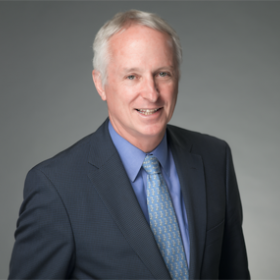
A New Direction in Diplomacy
At the recent Munich Security Conference, leaders and experts lamented challenges to world order in international relations. Some said they fear that the risk of nuclear confrontation is greater than at any time since the end of the Cold War; others, that the rise of new powers, coupled with the instability represented by Daesh (ISIS) or refugees in Europe or structural crises in the global economy, is putting unbearable strain on the institutions the world has relied upon for the last half century.
Certainly there’s much truth to these observations. But it’s not just a question of identifying these challenges. It’s also a question of assessing what tools we have to face them. The core constituency of the conference in Munich—indeed, of the foreign policy elite around the world—remains foreign ministers and high-ranked diplomats, the governments who direct them and the experts and former officials who provide advice and counsel. And while the gloom in Munich didn’t restrict itself to Europeans, it was hard to avoid the conclusion that much of the atmosphere was the result of these ministers, political leaders and experts concluding that traditional, mostly European oriented efforts are in trouble. The Euro crisis, the migrant issue, the prospect of Greek or British departure from the EU and efforts to pay for and coordinate NATO’s actions have, in this difficult year, sapped the confidence of European leaders. And friends from the Middle East or across the Atlantic look on with concern.
There are other sources of strength to be applied to these problems. Yes, there are state-sponsored solutions. But a number of other forces are at work that gives hope for new answers to global questions. It’s only a matter of recognizing these forces and uniting efforts of “Westphalian” diplomatic traditions with 21st century allies.
In my recent Foreign Affairs piece, entitled “Diplomacy Disrupted,” I suggest some of these allies are already deeply in engaged in tackling current problems. The EastWest Institute is one of them. We engage Chinese leaders on security issues from North Korea to the South China Sea; we bring together Afghan, Pakistani and Indian business leaders seeking their contributions to regional stability in South Asia; and we foster patient dialogue among prominent voices in the Middle East whose governments do not communicate well.
We’re not the only ones. In Munich, away from the plenary hall pronouncements of decline, there were a number of meetings focused on cybersecurity. Taking the lead in many of these discussions were business leaders, tech firms from around the world who seek predictability in marketplaces. They discussed policy challenges and potential conventions that would allow orderly growth in their field. Who better to lead this than the business community? EWI is working closely with these firms as part of its global cybersecurity initiative and working cooperatively with government officials, often leading the way in finding innovative solutions.
Not only business leaders, but also advocacy organizations are taking on problems from security to environmental protection to human rights. Part of this task is not just filling a perceived gap of governmental capacity or interest, but also reframing questions. Take, for example, the city of London, whose “London First” initiative is described as an effort to make the city a safe, secure, attractive place to do business. On the surface, this may look like traditional civic boosterism. But increasingly, world order will depend on how cities—especially the mega-cities that are growing around the world—can cope, in concrete ways, with the problems facing national governments. It may be that the perspective of city governments will suggest solutions that these traditional authorities might overlook.
This New Diplomacy—the diplomacy of those who are not traditional state representatives but who often work closely with them—can, I propose, address global issues in new and innovative ways. Not to deny that there are enormous global difficulties. But practitioners should take heart that there are many smart people and groups taking on these challenges, and not all of them are wearing diplomatic pinstripes. Look for the EastWest Institute among those practitioners of new diplomacy.

